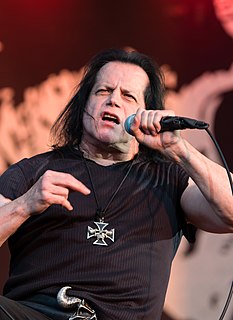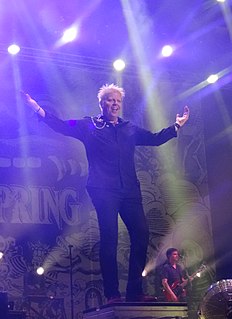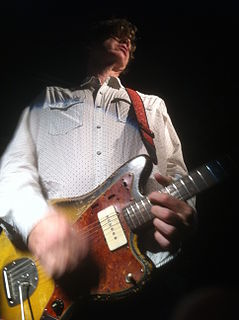A Quote by Boots Riley
That punk approach of 'We don't wanna get big' is really a bourgeois thing. It's not a tactic of people that actually have been successful at changing things.
Related Quotes
I naturally gravitate toward the big picture which isn't necessarily advantageous when you go on to a career in research because successful researchers usually choose a pretty narrow channel. So having tunnel vision actually helps you stay where you are supposed to stay. The big picture in medical care was looking at the underlying causes of all of this pathology. I really wanted to do something about that and play a meaningful role in changing the trajectory of people's lives and their health and by changing their health, changing the quality of their lives.
As well as Japanese animation, technology has a huge influence on Japanese society, and also Japanese novels. It's because before, people tended to think that ideology or religion were the things that actually changed people, but it's been proven that that's not the case. Technology has been proven to be the thing that's actually changing people. So in that sense, it's become a theme in Japanese culture.
Who decides what is and what isn't punk? I want to write songs that people hear and feel, and I want to be successful and reach a big audience. I'm not trying to be the coolest guy in the world; I'm trying to write songs that mean something to people. As you get successful, sometimes you lose one set of fans and gain another.
As far as my single selections, over the years it's been a very essential part of my survival tactic, but I have no problem being able to jump on records with whoever people think is the rawest rapper in the game or number one or King or whatever they wanna name themselves, to be honest with you. It doesn't affect me, 'cause that's what I come from; I'm comfortable in that zone. But I don't wanna make hood music, I don't wanna make street music, I want to make world music, global music, international music.
London has become really boring. I mean, years ago, London was really happening - there was swinging London and then punk. It was really different from other cities, and so I'd always wanted to go there and see what was actually going on. After that, hip-hop was the next thing happening, so to get the records or the proper clothing, you really had to actually go to New York. But now you don't really need to go.
My illness has changed me - I've always thought "life is short and I wanna make as much of it as I can," but I really don't have time to mess around. This has really been a wake-up call in terms of what's important, and I'm working hard to figure that out. I need to get better at not doing favors for people all the time. It's hard because there's so many people who have helped me get to the point where I'm in a band that people wanna come see, or where people pay money to see me lecture.
Occupy was not a movement, it was a tactic. You can't sit forever in a park near Wall Street. You can't do it for more than a few months. It was a tactic I had not predicted. If people asked me, I would have said "don't do it." But it was a great success, an enormous success, with a big impact on people's thinking, on people's actions.
The difference we wanna make is number one to let these kids know that they’re not alone, that they’re actually not that messed up and that they can do whatever they want; they can express themselves however they want, without being persecuted or called a faggot or some kind of racist thing. You know, really just to get people to get over their stuff so they can live.
I don't think we know yet what broadcast television did to us, although it obviously did lots. I don't think we're far enough away from it yet to really get a handle on it. We get these things, I think they start changing us right away, we don't notice we're changing. Our perception of the whole thing shifts, and then we're in the new way of doing things, and we take it for granted.




































